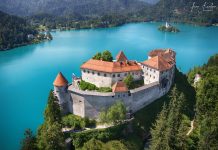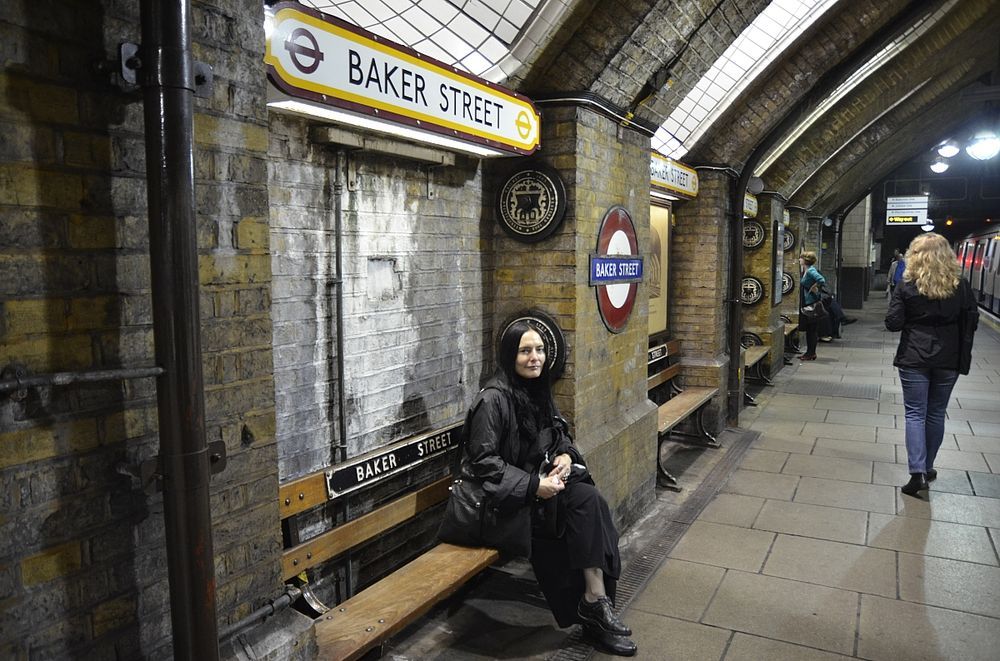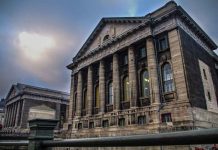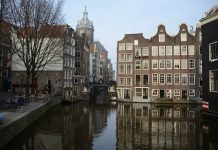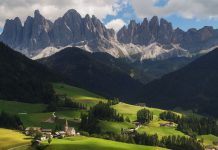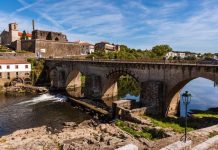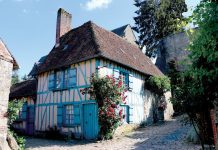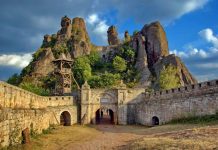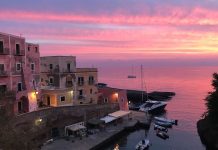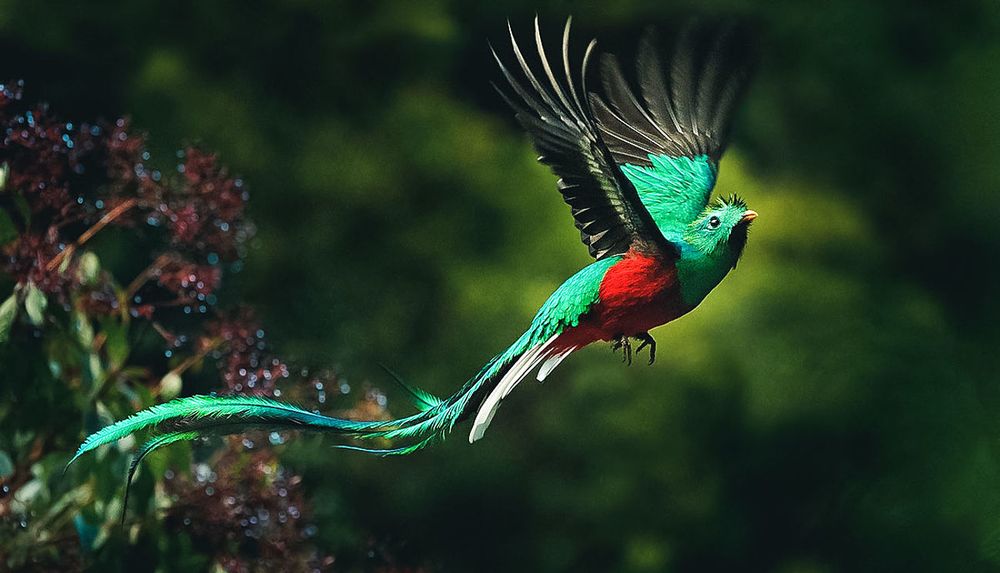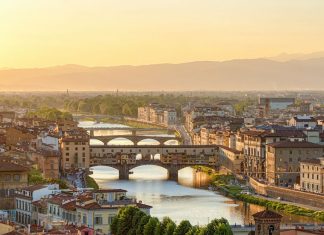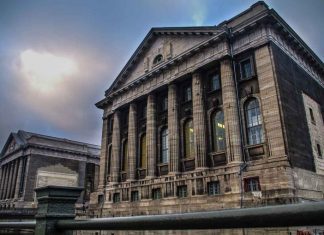1. Marienplatz – Marien Square and the New Town Hall of Munich
Marienplatz is the central square in the heart of Munich; from here, you can explore many old and wonderful buildings, churches and landmarks. Marienplatz houses the Mariensäule, the Marian Column topped with the golden statue of Virgin Mary, and it is also home to the Old and the New Town Hall of Munich.
The tower of the New Town Hall houses the Glockenspiel, a beautiful carillon that is over 100 years old. Come here at 11 a.m. or noon to hear the Glockenspiel chime and watch the 32 life-sized figures reenact historical Bavarian events. Look out for the golden bird that chirps 3 times to mark the end of each show.
Bastian Stein
2. Frauenkirche – Cathedral of Our Blessed Lady
The Catholic Cathedral of Our Blessed Lady is the landmark of Munich and the city’s largest church; it holds up to 20,000 people.
Together with the Town Hall, the sturdy twin towers of the Cathedral shape Munich’s skyline and make it a great point of orientation.
You can also climb the steps of the towers – the view of Munich’s cityscape and the Bavarian Alps is breathtaking.
The architectural style of the brick-built cathedral is late Gothic from the 15th century. Its famous domes atop each tower were modeled on the Dome of the Rock in Jerusalem.
Edwin Lee
3. Dachau Concentration Camp
The concentration camp of Dachau, 10 miles northwest of Munich, was one of the first concentration camps in Nazi Germany and would serve as a model for all subsequent camps in the Third Reich.
Dachau visitors follow the "path of the prisoner", walking the same way prisoners were forced to after their arrival in the camp. You will see the original prisoner baths, barracks, courtyards, and the crematorium, as well as an extensive exhibition and various memorials.
Aschaf
4. The English Garden
Just a few blocks northeast of the Munich Residence is the English Garden, Munich’s largest park. Bigger than Central Park in New York, this green oasis is a wonderful place to explore: Rent a paddle boat, stroll along the wooded paths, visit one of its traditional beer gardens, and watch the German answer to surfing on the currents of the waterway called Eisbach.
Eric Chan
5. Best Beer Halls in Munich
If you want to drink your Bier the way it was meant to be, visit one of the many beer halls in Munich; most of them brew their own beer, and your drink will taste even better with a platter of local specialties and some oompah music. You probably heard about Hofbrauhaus, one of the most famous beer halls in Germany (the world?), but, of course, there is more than that. Here’s a list of the best Munich beer halls, where you can experience Bavarian hospitality at its best.
Munich Image
6. Viktualienmarkt – The Victuals Market
Only a few steps away from Marienplatz, you’ll find the bustling Viktualienmarkt, Munich’s daily outdoor farmers market. Stroll past the 140 colorful booths and enjoy the unique flavor of this market that boasts a great variety of fresh and regional food.
The Viktualienmarkt, whose beginnings date back to the early 19th century, offers everything from flowers, honey, and spices, to meat, cheese, eggs, and pastries. Take in the garlands of sausages, mountains of fresh vegetables, and pyramids of fruits, and let your senses be seduced.
Phil Whitehouse
7. Residence Palace of Munich
At the edge of Munich’s old town lies the Residence, the former royal palace of the Bavarian monarchs. Today the Residence houses one of the best European museums of interior decoration. The Residence, whose first buildings were constructed in 1385, consists of ten courtyards and beautiful historical gardens. The museum itself displays 130 rooms with antique furniture, art, porcelain, and tapestries that span the Renaissance, Baroque, Rococo, and the neoclassical era.
Wolfgang Manousek
8. Deutsches Museum – German Museum
The German Museum is located on an island in the river Isar that runs through Munich’s city center. It is one of the oldest and largest science and technology museums in the world and boasts an impressive collection of historic artifacts.
You can see the first electric dynamo, the first automobile, and the laboratory bench where the atom was first split. Other highlights of the museum include exhibitions on astronomy, transportation, mining, printing, and photography.
Atrium of the Pinakothek der Moderne. Dave Morris
9. Museums Ensemble: Alte Pinakothek, Neue Pinakothek, Pinakothek der Moderne
West of the English Garden is a unique ensemble of three museums, each of them highlighting a different period in European art. The Alte Pinakothek is one of the oldest art galleries in the world and home to over 800 European masterpieces from the Middle Ages to the end of the Rococo. You can see one of the biggest Rubens collections here.
The Neue Pinakothek features art and sculpture from the late 18th to the beginning of the 20th century. Highlights include German art of the 19th century, such as paintings from Caspar David Friedrich, and a wonderful collection of French impressionists. The Pinakothek der Moderne is the largest museum for modern art in Germany and spotlights art of the 20th century, including photography and video.
Allie Caufield
10. Olympic Stadium of Munich
This stadium was the site of the 1972 Summer Olympics, and its design was revolutionary and futuristic for its time: The sweeping and transparent canopies of acrylic glass that were modeled on the Alps are the signature characteristic of the Olympic Stadium.

